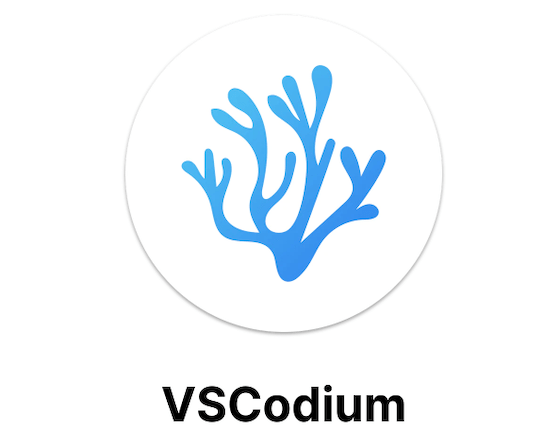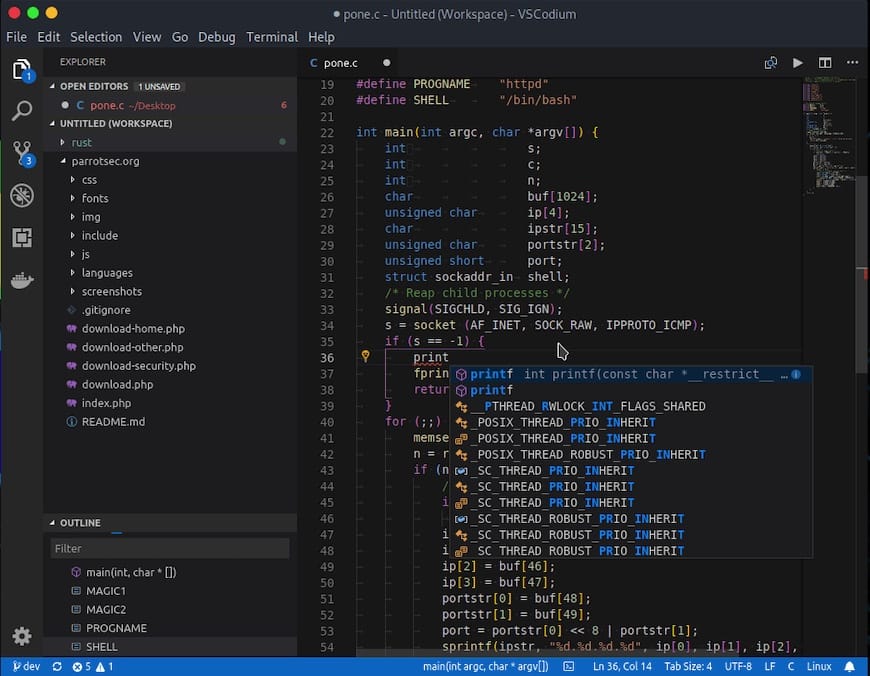How To Install VSCodium on Fedora 41

In the world of code editors, VSCodium stands out as a powerful, open-source alternative to Microsoft’s Visual Studio Code. For developers using Fedora 41, installing VSCodium can significantly enhance your coding experience while maintaining your privacy. This comprehensive guide will walk you through the process of installing VSCodium on Fedora 41, exploring various methods and providing essential tips for a smooth setup.
Understanding VSCodium
Before diving into the installation process, it’s crucial to understand what VSCodium is and why it’s gaining popularity among developers. VSCodium is essentially Visual Studio Code (VS Code) without Microsoft’s telemetry and licensing. It’s built from the same source code as VS Code but compiled without proprietary bits, making it a truly open-source editor.
Key features of VSCodium include:
- Identical functionality to VS Code
- Enhanced privacy with no telemetry
- Open-source licensing
- Regular updates in sync with VS Code
- Support for extensions (with some limitations)
Choosing VSCodium over VS Code is primarily a decision based on privacy concerns and a preference for fully open-source software. If you’re a developer who values these aspects, VSCodium on Fedora 41 is an excellent choice for your coding needs.
Pre-Installation Steps
Before installing VSCodium, ensure your Fedora 41 system is ready:
- Verify your Fedora version:
cat /etc/fedora-release - Update your system:
sudo dnf update -y - Backup your important data, especially if you’re migrating from another editor.
These steps will minimize potential issues during the installation process.
Installation Methods Overview
There are three primary methods to install VSCodium on Fedora 41:
- Repository Installation
- Flatpak Installation
- RPM Package Installation
Each method has its advantages, and we’ll explore them in detail to help you choose the best option for your needs.
Method 1: Repository Installation
The repository method is often preferred for its ease of updates and integration with the system package manager.
Adding Required Keys and Repository
Follow these steps to add the necessary GPG key and repository:
- Import the GPG key:
sudo rpm --import https://gitlab.com/paulcarroty/vscodium-deb-rpm-repo/-/raw/master/pub.gpg - Add the VSCodium repository:
sudo tee -a /etc/yum.repos.d/vscodium.repo << EOF [gitlab.com_paulcarroty_vscodium_repo] name=gitlab.com_paulcarroty_vscodium_repo baseurl=https://paulcarroty.gitlab.io/vscodium-deb-rpm-repo/rpms/ enabled=1 gpgcheck=1 repo_gpgcheck=1 gpgkey=https://gitlab.com/paulcarroty/vscodium-deb-rpm-repo/-/raw/master/pub.gpg metadata_expire=1h EOF
Step-by-Step Installation Commands
With the repository set up, install VSCodium using the following commands:
- Update the package cache:
sudo dnf check-update - Install VSCodium:
sudo dnf install codium
After installation, verify by launching VSCodium from the application menu or by running codium in the terminal.
Troubleshooting Repository Installation
If you encounter issues during repository installation, try these solutions:
- Ensure your internet connection is stable.
- Check for conflicting repositories or keys.
- Temporarily disable SELinux if you suspect it’s blocking the installation.
Method 2: Flatpak Installation
Flatpak offers a sandboxed environment, which can be beneficial for system integrity and easy application management.
Setting Up Flatpak
To install VSCodium via Flatpak:
- Ensure Flatpak is installed:
sudo dnf install flatpak - Add the Flathub repository:
flatpak remote-add --if-not-exists flathub https://flathub.org/repo/flathub.flatpakrepo - Install VSCodium:
flatpak install flathub com.vscodium.codium
Post-Installation Configuration
After Flatpak installation, you may need to:
- Grant necessary permissions for file access.
- Configure Flatpak to start automatically with your system.
- Add VSCodium to your application menu for easy access.
Method 3: RPM Package Installation
The RPM package method is straightforward but requires manual updates.
Direct Download Method
To install VSCodium using the RPM package:
- Visit the VSCodium releases page.
- Download the latest
.rpmfile for Fedora. - Install the package:
sudo dnf install ./path/to/vscodium-*.rpm
Remember to periodically check for updates and manually install new versions when available.
Post-Installation Setup
After installing VSCodium, customize your environment:
First Launch Configuration
- Set up your preferred color theme and icon set.
- Configure keyboard shortcuts to match your workflow.
- Install essential extensions for your development needs.

Workspace Configuration
Create a productive workspace by:
- Setting up project-specific settings.
- Configuring version control integration.
- Customizing the sidebar and panel layouts.
Maintenance and Updates
Keeping VSCodium updated is crucial for security and new features:
Updating VSCodium
- For repository installations:
sudo dnf update codium - For Flatpak:
flatpak update com.vscodium.codium - For RPM installations, download and install the latest version manually.
Managing Repositories
Regularly check your repository settings to ensure they’re up-to-date and functioning correctly.
Uninstallation Guide
If you need to remove VSCodium, follow these steps based on your installation method:
Repository Method Removal
sudo dnf remove codium
sudo rm /etc/yum.repos.d/vscodium.repoFlatpak Removal
flatpak uninstall com.vscodium.codiumRPM Package Removal
sudo dnf remove codiumTroubleshooting Common Issues
When encountering problems with VSCodium on Fedora 41, consider these common issues and solutions:
Repository Errors
- Verify your internet connection and repository URLs.
- Check for conflicting software or repositories.
- Ensure your system time is accurate to avoid certificate issues.
Installation Failures
- Clear DNF cache:
sudo dnf clean all - Check for sufficient disk space.
- Verify system architecture compatibility.
Configuration Issues
- Reset user settings by renaming the configuration folder.
- Check for conflicting extensions.
- Verify file permissions in your home directory.
Congratulations! You have successfully installed VSCodium. Thanks for using this tutorial for installing the VSCodium on Fedora 41 system. For additional help or useful information, we recommend you check the VSCodium website.